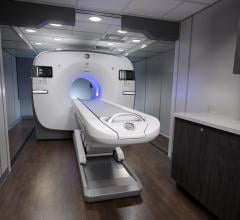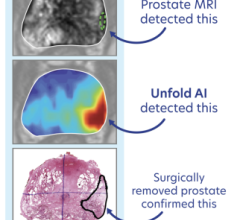May 13, 2015 — Cancer Targeted Technology (CTT), announced that it was awarded a NIH two-year, $2 million Small Business Innovation Research (SBIR) grant. The funds will be used to develop a new agent that will help diagnose and monitor metastatic prostate cancer.
CTT1057 — a positron emission tomography (PET) imaging agent discovered by Cliff Berkman, Ph.D., professor of chemistry at Washington State University and CTT chief scientific officer — may be well-suited for imaging the location of cancer metastases that have escaped the prostate gland. Unlike other prostate cancer targeting agents, CTT1057 is a small molecule that homes and binds irreversibly to prostate-specific membrane antigen (PSMA) that is overexpressed on prostate cancer.
Berkman commented, “Our team has spent several years carefully developing and optimizing CTT1057; as the lead scientist on this program I am excited that this SBIR grant will allow CTT to translate these significant research findings into human clinical studies.”
CTT1057 was designed as an ideal delivery vehicle and can be loaded with a variety of radionuclides and chemotherapies to specifically and safely guide imaging nuclides and therapies to PSMA-expressing prostate cancer. In 2014, CTT received a grant from the Washington state Life Sciences Discovery Fund to perform manufacturing and key preclinical studies for CTT1057. The current SBIR allows CTT to continue the manufacturing and file the Investigational New Drug Application for the human clinical trial in prostate cancer, set to commence in late 2015. CTT will work with contractors and collaborator Henry VanBrocklin, Ph.D., professor, Department of Radiology and Biomedical Imaging, and clinicians at University of California-San Francisco, to conduct initial clinical trials with 18F-labeled CTT1057.
VanBrocklin added: "We are eager to continue our collaboration with CTT to advance CTT1057 to human trials. We believe this important agent will improve the availability and efficacy of imaging for prostate cancer diagnosis, staging and treatment monitoring."
For more information: www.cancertargetedtechnology.com


 July 30, 2024
July 30, 2024 








